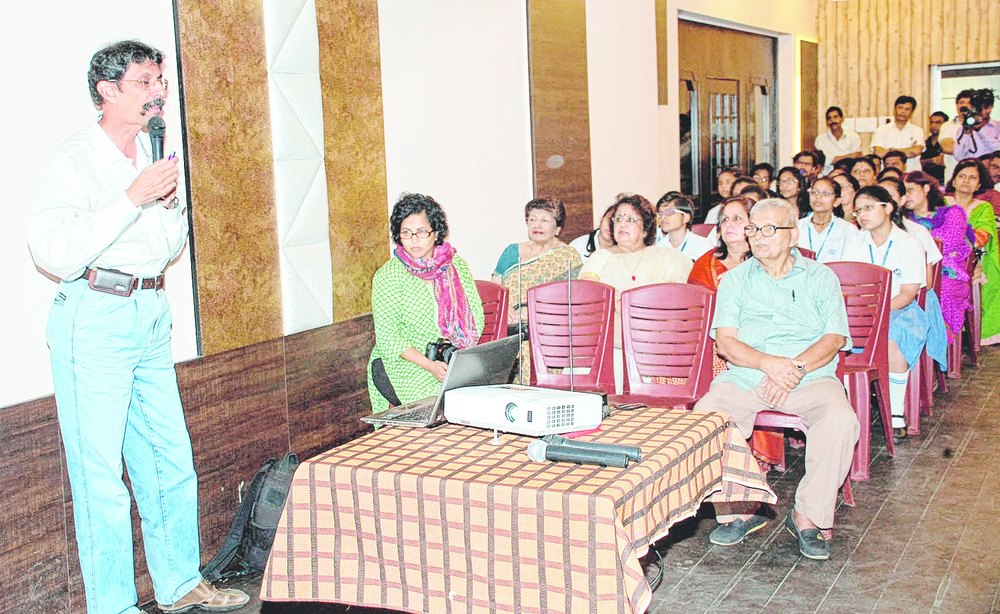
Dhanbad's water woes may soon be history if a three-phased groundwater management system is implemented.
"By mapping groundwater in the first phase, recycling it in the second and roping in government agencies to protect resources in the third, we can look forward to better conservation," said groundwater expert and founder-cum-executive director of Pune-based Advanced Centre for Water Resources Development and Management Himanshu Kulkarni.
Speaking at a two-hour public discourse on participatory groundwater management organised at Dhanbad Club on Sunday, Kulkarni said there were two different geological conditions in Dhanbad. "One is that of the town and the other of the mining areas. Activities related to groundwater use on one part will affect the water scenario in the other area. So, any water management plan must be made keeping in mind the inter-dependence," reminded the former chairman of the working group on sustainable groundwater management for the 12th Five Year Plan.
Organised by Megh Pyne Abhiyan, the discourse - titled Baleshwar Prasad Oration Series - saw Kulkarni presenting a video to make his points clearer. "The basic aim of the discourse is to develop a collective understanding of the groundwater scenario," he maintained.
Answering a pointed query made by DPS student Rahul Kumar, Kulkarni elaborated why there was so much dependence on groundwater. "Tapping groundwater is both cheaper and easier compared to surface water. For the latter, a dam needs to be constructed. But, for using groundwater, one only needs to make a deep bore," the expert said.
Other speakers like associate professor of environment science engineering at ISM Biswajit Paul and managing trustee of Megh Pyne Abhiyan Eklavya Prasad also expressed their views on the issue.
Prasad said rapid urbanisation, increased individual per capita use, exploitation and pollution of rivers and the relatively modest cost of sinking bore wells had resulted in increased dependency on groundwater in developing cities.
"Therefore, it is very important to understand the critical issues that are related to urban water management system and usage to develop a strategic way forward to manage groundwater effectively," he added.










